The HARNESSTOM partners can build on the scientific expertise of an outstanding consortium of complementary academic groups as well as agronomic knowledge and production experience provided by breeding companies and farmer associations located in the different participating countries.
|

Prof. Antonio Granell
Coordinator
|
Partner 1 CSIC: Agencia Estatal Consejo Superior de Investigaciones Científicas
"Coordinator will monitor progress fo the workplan measured against deliverable and milestone planning, as well as be responsible for quality assurance of project outcomes including reporting to EU. Responsible for integrating information from all partners identifying f bottlenecks, risks, or delays, and the initiation of appropriate contingency planning at the project level. Monitor compliance and Ensure Adherence to Institutional and National Guidelines, including those for Ethics and Biosafety by all project participants. Antonio Granell will also in charge of CSIC activities in transferring information from previous projects (WP3), speeding up breeding (WP4) and improving flavour (WP7)."
|

|
|

Dr. Antonio J. Monforte |
Partner 1 CSIC: Agencia Estatal Consejo Superior de Investigaciones Científicas
“CSIC will also co-lead with ENZA ZADEN the WP6 on improving tomato tolerance to climate change threats. We are interested in developing new elite cultivars in a cooperative approach between seed companies and academic partners. Breeding programs will be implemented based on tolerant genetic materials previously developed and tested by WP6 partners to increase the tolerance of elite cultivars" |

|
|
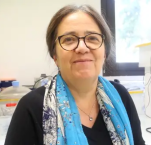
Dr. Mathilde Causse
|
Partner 2 INRAe: Institut National de Recherche pour l’Agriculture, l’Alimentation et l’Environnement
"In Harnesstom, INRAE will be co-leader of WP7 on Fruit Quality. In this WP we will identify the most interesting resources for breeding fruit quality and improving traits related to fruit quality. INRAE will contribute to the optimisation of pre-breding for several quality traits. We will also contribute to WP4 on Genomic-oriented selection to enhance breeding gain for fruit quality traits."
|
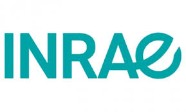
|
|

Dr. Mohamed Zouine
|
Partner 3 INPT: Institut National Polytechnique de Toulouse
"We aim to provide public and private partners with a curated and integrated web-based relational database including data mining tools and publicly available genomics, genetics and breeding data for tomato accessible via an academia URL in a one-stop-shop configuration. We are also involved in the design of the project website, communication channels, and the project management tools."
|  |
|

Prof. Mondher Bouzayen
|
Partner 3 INPT: Institut National Polytechnique de Toulouse
|

|
|

Prof. Giovanni Giuliano
|
Partner 4 ENEA : Agenzia nazionale per le nuove tecnologie, l'energia e lo sviluppo económico sostenibile.
"ENEA will lead WP4 (Tools to increase the speed, efficiency and precision of breeding). These will include methods to reduce generation time and increase recombination efficiency, thus accelerating the production of new allele combinations, and methods for genotyping to accelerate work in WP5-7. In WP7, ENEA will work towards improving tomato fruit jhealth attributes and health life, and in WP9 will conduct Life Cycle Analyses of products and processes emerging from the project deliverables."
|

|
|

Prof. María J. Diez
|
Partner 5 UPV : Universidad Politécnica de Valencia
“The UPV will lead the WP8 on Participatory Plant Breeding and Citizens Science. The general aim of the WP is to involve farmers, consumers, trend maker chefs and academy in the pre-breeding and breeding activities by designing innovative strategies that will ultimately result in locally-adapted materials. UPV will also participate in other WPs about legislation and ethics aspects (WP2), contributing to develop strategies to speed breeding (WP4) and looking for resistance to emerging diseases (WP5)”.
|

|
|

Prof. Jaime Prohens
|
Partner 5 UPV : Universidad Politécnica de Valencia
“We aim at different targets for enhancing the value of genetic resources and incorporating them in breeding pipelines. This includes reducing generation times for tomato breeding, genotyping and resequencing, searching sources of resistance to new emerging viral diseases and mapping the resistances. An important emphasis will be made in identifying ideotypes for tomato, constituting a repository for promising materials and performing participatory breeding programs to develop new materials adapted to local demands”.
|

|
|
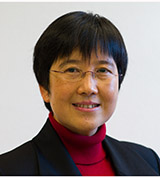 Prof. Yuling Bai Prof. Yuling Bai
|
Partner 6 WUR : Wageningen University & Research
“WU will lead WP5 -- “Improving resistance against (emerging) diseases”. The main objective of this workpackage is to improve the resistance of tomato to three emerging diseases. WU will work on the resistance to tomato leaf mould disease caused by new strains of the biotrophic fungus Cladosporium fulvum. In addition to WU, eight other partners participate in WP5. Together, we will also work on the resistance of tomato against two emerging viral diseases caused by Tomato
brown rugose fruit virus and Tomato leaf curl New Delhi virus.”
|
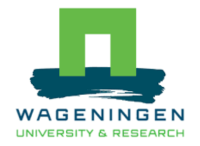
|
|

Prof. Mara Ercolano
|
Partner 7 UNINA : Unniversità degli studi di Napoli Federico II
"The University of Naples “Federico II” carries out outstanding scientific research and teaching in most disciplines (80,000 students,3000 professors and 161 degree courses). The Department of Agricultural Sciences (DAS) is very active in the developing research for making a sustainable society and the unit of Plant Genetics and Biotechnology has a very long and documented experience in tomato genetics and breeding. Our group has been involved in the sequencing of several Solanum genomes, disease resistance analysis, heat stress tolerance evaluation, flavor traits dissection traditional germplasm exploitation. In HARNESSTOM project UNINA will be involved in GS both for heat stress tolerance and flavor related traits, assessment of a putative source of resistance to TBRFV, evaluation of heat stress tolerant lines and participatory breeding for improvement of traditional varieties. Moreover,UNINA will coordinate the global assessment of advanced materials, marketing strategy, life cycle in WP9."
|

|
|

Dr. María J. Asins
|
Partner 8 IVIA : Instituto Valenciano de Investigaciones Agrarias
"IVIA will participate in WP8, and mainly WP6 aimed to maintain tomato productivity under adverse conditions generated by climate change using rootstocks derived from from wild species Solanum pimpinellifolium and S. cheesmaniae."
|

|
|

Prof. Dani Zamir
| Partner 9 HUJI : The Hebrew University of Jerusalem |

|
|

Prof. Ivanka Tringovska
|
Partner 10 MVCRI : Maritsa Vegetable Crops Research Institute
"In HARNESSTOM project MVCRI will participate with about 500 genotypes that are created and maintained in the Institute. All the information collected previously and needed for project implementation as yield, fruit quality and resistances will be provided. Main efforts of the team will be focused on WP5 and WP8. In WP5 we will detect and map new sources of tolerance/resistance to ToBRFV within MVCRI collection of ~500 tomato genotypes. In WP8 we will assemble data generated by previous projects (G2P-SOL, TomGem) in order to contribute to the repository of genotypes. In Participatory plant breeding task we will improve the resistance to ToMV of a local pink oxheart tomato landrace by a backcross program."
|
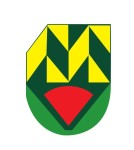
|
|

M. Mauricio Calduch
|
Partner 11 ALCALAX : Asociación de Productores y Comercializadores de la Tomata de Penjar d'Alcalà de Xivert
"ALCALAX will participate in WP7 on Fruit Quality. In this WP we will identify the most interesting resources for breeding fruit quality and improving traits related to fruit quality. ALCALAX will contribute to introgressing resistance to TSWV, TYLCV, Fusarium, Verticillium, and Meloidogyne in the “De Penjar” tomato variety. Moreover, It will be involved in the Development of new “De Penjar” tomato varieties with high agronomic value and resistance genes. The aim is to develop a set of new varieties of the “De Penjar” type combining outstanding agronomic and quality traits together with the resistance to ToMV, which is essential at present."
| 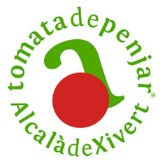 |
|

Mr. David Gil
|
Partner 12 ENZA : Enza Zaden Centro de Investigación S.L.
"Enza Zaden is an international and familiar breeding company working in 25 vegetable species although tomato is of course one of our priority. In Spain we are located in Almería where we bred protected horticultural crop and in Murcia open field crops. We want to focus our power in innovation and we were involved in some international projects as TomGEM and HARNESSTOM. We are mainly involved in WP6 were we will provide elite lines, and facilities to integrate germplasm and evaluate progeny with the aim of introgress heat tolerance in tomato varieties. Also we will have a small collaboration in WP4 where we will evaluate the industrial application of protocol and genotypes for increase recombination in elite genetic backgrounds"
|

|
|

Dr. Clémence Plissonneau
|
Partner 13 GAUTIER : Gautier Semences
|
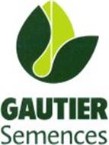
|
|

Dr. Shai Koussevitzky
|
Partner 14 VCo : Vilmorin & Cie.
" In HARNESTOM, Vilmorin and Cie. will participate in WP7 on fruit quality. We will introgress the most effective QTL identified by the other participants into elite germplasm to generate a pre-commercial hybrid with improved fruit flavor. We will generate, together with INRAE, a pre-breeding population based on elite breeding line enriched with QTL affecting fruit quality. We will also assist in WP5 by conducting field trials for TYLCV-New Delhi resistance."
|

|
|

Dr. Mina Formisano
|
Partner 15 SEMIOROTO : Semiorto Sementi S.R.L.
"Semiorto will be co- leader in WP9, Global assessment of advanced materials, marketing strategy, life cycle assessment with UNINA, to develop Business Design and Marketing strategies. Moreover, Semiorto will also participate in other WPs, contributing to validate strategies to speed breeding (WP4), evaluating tomato materials, with increasing tolerance against abiotic and biotic stresses (WP5-WP6), and with traits related to fruit quality (WP7)."
|

|
|

Dr. Carlos Baixauli
|
Partner 16 FCCV : Fundación Cajamar de la Comunidad Valenciana
"FCCV will be co- leader of the WP2 Public Engagement and project dissemination. Together with all partners, will ensure coherent external communication of the project and its results towards relevant target groups. It will synthesize the results from other work packages and support innovation-related activities such as dissemination and exploitation of results, to maximize project impact. Moreover, FCCV will contribute in WP6 evaluating new tomato materials with increasing tolerance against abiotic stresses, focusing in task 6.4 Tolerance to heat stress and BER."
|

|
|

Dr. Ascensión Ciruelos
|
Partner 17 CTAEX : Centro Tecnológico Agroalimentario Extremadura
"CTAEX will be co-leader in WP2, Public Engagement and project dissemination together with FCC, concretely in the Communication Team, ensuring consistent dissemination and communication, guarantying optimal visibility and a wide outreach to all relevant stakeholders. CTAEX will also participate in the agronomical evaluation of developed varieties in its experimental farm in WP6 and WP7." |

|
| Dr. Liron Shalom |
Partner 18 TOPSEEDS : TopSeeds
"Top Seeds role in HARNESSTOM is to screen new germplasm for ToBRFV resistance. Screens will include inoculation with the virus, scoring of symptoms and quantification by ELISA assays. The germplasm will be screened in two stages: First, on small plants in trays. This will enable an initial evaluation of multiple lines relatively fast. Second, lines that show high potential will be taken to the field. This will enable a more accurate evaluation of the resistance/tolerance that is found, throughout the growth cycle with focus on fruits symptoms. Once a promising novel resistance source is found, further steps will be taken to study its genetics and to develop a marker. In order to carry out the screens efficiently, Top Seeds has set up a dedicated facility with growth conditions that ensure high-throughput and uniformity."
|

|
|

Dr. Yaniv Semel
|
Partner 19 PHEN : Phenome Networks
"Phenome Networks is a world leader in software solutions for plant breeding. Its enterprise web platform supports managing the entire breeding cycle of many crops, including, vegetables, field crops, ornamentals, trees, cannabis and more. The system empowers breeders to manage their data, as well as make informed decisions that will result in better varieties. Its software is being used in tens of countries by more than 100 breeding companies, including some of the world's leading, by more than 2,000 breeders, managing a total of more than 10,000,000 germplasm with hundreds of millions of data points that are related to plants’ observations."
|

|
|

Prof. Andrea Mazzucato
|
Partner 20 UNITUS : University of Tuscia
“UNITUS will contribute to Harnesstom in WP6 and WP8. In WP6, we aim to dissect the genetic determinants of the “Stigma position” trait, a flower phenotype that affect autogamy and fertility and is affected by heat conditions. and will harness its control by breeding. In WP8, we will be involved in several tasks, with emphasis on Task 8.3. “Connecting Citizen Science and Participatory Plant Breeding to improve the efficiency of tomato breeding” and Task 8.5 “Participatory Plant Breeding (PPB) to diversify tomato colour and quality”.
|
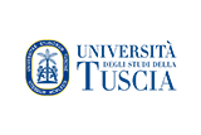
|
|

Prof. Kaiyi Chen
|
Partner 21 TWN : National Taiwan University
" National Taiwan University collaborates with partners in WP6 and leads Task 6.4. We aim to delineate the gene(s) conferring heat tolerance from previously defined QTLs and to search/delimit heat-tolerant QTLs for fruit setting and pollen viability in a new recombinant inbred population. We help to breed elite tomato varieties with improving heat-tolerance through the marker-assisted selection strategy."
|
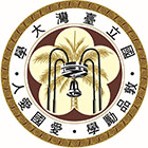
|
|

Dr. Peter Hanson
|
Partner 22 AVRDC : The Asian Vegetable Research and Development Center
The World Vegetable Center (formerly AVRDC), is an international non-profit institute for vegetable research and development. WorldVeg (AVRDC) is part of Work Package 5 and leads Task 5.5 ‘Evaluation of existing pre-breeding materials for resistance to ToLCNDV’ (Tomato leaf curl New Delhi virus). Task 5.5 will coordinate multilocation trials to assess the effectiveness of several begomovirus (Ty) resistance genes against ToLCNDV and other selected aggressive begomoviruses.
|

|













































